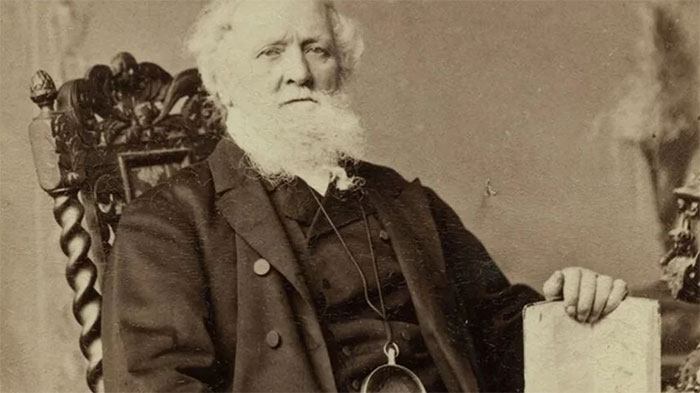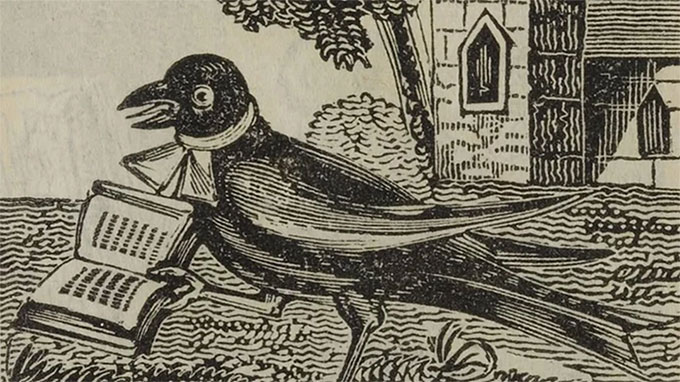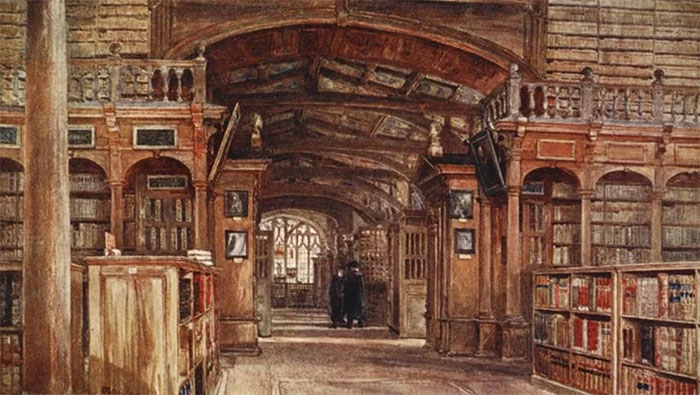With the advent of e-books in the early 21st century, discussions about whether digital media will ultimately replace printed books have become commonplace. Historically, concerns about the “death of books” have been prevalent since the 1820s.
Despite these debates, printed books show no signs of disappearing from the post-digital world. Thomas Phillipps is known not only as an English book and antiquities collector but also as a true bibliophile, possessing the largest collection of books and manuscripts from the 19th century.
The book “A Gentle Madness” describes Phillipps as the greatest manuscript collector the world has ever known. However, for Phillipps, this was more of a habit, a terrible obsession that led him into debt.

Book collector Thomas Phillipps. (Photo: Grunge).
The Origins of Obsession
Thomas Phillipps’ passion for collecting books began in his youth, around the early 19th century, with a collection of chapters referred to as Gothic Green Books. While Phillipps went on to collect an astonishing number of rare and valuable documents, these story volumes were a humble starting point for him.
They were often small books or pamphlets, mass-produced and sold by street vendors. Printed cheaply and often filled with poetry and short stories, they were sold for just a few cents. For centuries, such forms of literature became popular as a way to make writing accessible to the poorest in society, and they were so inexpensive that they were favored by children—children like young Thomas Phillipps.
As Phillipps began to become more “addicted” to collecting, he owned over 127 titles. As a dedicated collector, maintaining a catalog became a necessary habit, and this early listing was a precursor to a practice that Phillipps would keep for the rest of his life. As noted by the Grolier Club Gazette, he later kept a series of journals documenting all his literary activities.

Phillipps “addicted” to book collecting from a young age. (Photo: Grunge).
Bibliomania
The compulsive need to acquire books is termed “bibliomania”, and it is a rather notorious trait. As a pastime, book collecting first began to gain widespread popularity among the wealthy citizens of 19th-century England, and it has a long and unusual history of its own.
Even at that time, many in society viewed it as a strange and irrational pastime. However, for Thomas Phillipps, collecting books was his passion. He always had a purpose.
Preservation. Phillipps was deeply saddened to hear about the destruction of old medieval manuscripts. Many old documents were written not on paper but on parchment. Parchment, often made from animal skin, is one of the best materials used for books.
Typically, parchment was used for the most important documents, including illuminated manuscripts from the medieval period—and it also included the original U.S. Constitution. Such manuscripts were Phillipps’ true passion, and he even coined a term for his style of collecting.
While other book collectors were merely bibliophiles, he referred to himself as a “bibliomaniac.”

The compulsive need to acquire books is termed “bibliomania”. (Photo: Grunge).
Lost Literature
Thomas Phillipps’ concern about the disappearance of medieval texts was not unfounded. Over time, many manuscripts have been lost, with only about 9% of medieval manuscripts from Europe still existing today.
There have been many reasons for the destruction of these old works, whether accidental or intentional. Historical fires have been the greatest danger, causing entire libraries to vanish. Other manuscripts have been lost due to political and religious reasons. Ironically, many were destroyed to be used as materials for binding printed books.
Broadway Tower and Middle Hill Publishing
The Phillipps family’s home was a large country house located in Middle Hill, Broadway, in southern England. This is where Thomas Phillipps initially began collecting books as a boy, and as he became more serious about literary collecting, he moved to live quite nearby.

Broadway Tower in southern England. (Photo: Grunge).
Phillipps collected books while studying at Oxford University. Although he was awarded various social titles due to his family connections, those books remained his primary interest. Using inheritance money, Phillipps later acquired Broadway Tower.
Inside Broadway Tower, Phillipps set up a printing house that he used to print records of historical documents, each record bearing the crest of a lion and the inscription “Sir TP / Middle Hill” as a mark of authenticity.
The tower itself was an ostentatious building, overlooking some of the most famous landscapes in England. Academics sometimes enthusiastically spoke of Phillipps’ hospitality, with one French scholar describing Broadway Tower as a “lighthouse” where “all pilgrims come to study are welcomed.”
A Grand Library
Thomas Phillipps is famously not the most organized collector, yet he amassed an astonishing collection. It is easy to imagine that Phillipps may never have read his entire collection, as he would ultimately own around 50,000 books and 100,000 manuscripts.
He even expanded to collecting other materials, including maps, blueprints, deeds, family trees, and even older items like Babylonian cylinder seals. His collection was so large that it eventually rivaled the entire libraries of universities.

Phillipps owned a vast library. (Photo: Grunge).
By the end of his life, Phillipps’ collection had become an obsession. He once boldly stated: “I wish I had a copy of every book in the world.” A lofty goal that he seemed to have come closer to achieving than anyone else in history.
The Cost of Collecting
Thomas Phillipps was wealthy, but the fortune he spent on his collection far exceeded the actual wealth he owned. The auction house Christie’s noted that a book dealer and librarian, ANL Munby, estimated that Phillipps might have spent up to a quarter of a million pounds and around 5,000 pounds annually. Adjusted for modern value, this amounts to approximately 23 million pounds in total and 470,000 pounds each year.
Needless to say, continuously spending such an absurd amount of money on books and manuscripts was entirely unsustainable. Phillipps inherited a considerable sum from his father, but this was clearly not enough to quench his insatiable thirst for books. As a result, Phillipps found himself nearly drowning in debt.
Collector or Hoarder?
Despite the treasures in his collection, Thomas Phillipps’ home resembled a “dilapidated dwelling.”
The house was stuffed with large boxes of manuscripts. Every room seemed filled with piles of papers, manuscripts, books, and all sorts of literary clutter stacked on tables, chairs, ladders, and even beds.
Each room was filled with boxes containing the most valuable items from Phillipps’ acquisitions, stacked high to the ceiling. The air in Phillipps’ house was always stifling, as the windows were never opened, perpetually filled with the smell of paper and parchment to the extent that it was “almost unbearable.”

The valuable manuscripts collected by Phillipps. (Photo: Grunge).
Phillipps’ Legacy
In 1863, Thomas Phillipps undertook the monumental task of moving his entire collection to a new home. At this point, his personal library, still cluttered, required a workforce to relocate. According to the book “The Shakespeare Thefts,” he hired 175 men and 250 horses to pull 125 wagons of books.
And while the location he moved to was only 20 miles away, the entire operation took up to two years. Phillipps’ new home, along with his collection, was a mansion, Thirestaine House, so large that food from the kitchen always arrived cold when it reached the dining room.
In the final days of his life, Thomas Phillipps struggled to find a new home for his vast collection of literature, but to no avail. Ultimately, his collection was inherited by one of his daughters, Katharine Fenwick, under the constraints of his unreasonable will.
It is known that it took a century of sales and auctions to sort through the mountains of texts he left behind. Although Thomas Phillipps may have wished for his collection to be kept together, it has since been dispersed across the globe.


















































